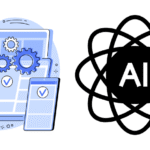Which is the best cross-platform framework in 2023? Join us as we embark on a thrilling exploration of the latest, greatest, and most powerful tools for mobile app dominance!

Cross-platform frameworks have revolutionized the mobile app development landscape, simplifying and accelerating the creation of apps for multiple platforms.
In 2023, developers are spoilt for choice, with many frameworks to choose from.
Let’s dive in
Flutter: Google’s Powerhouse
Key Takeaway: Flutter is a robust, easy-to-learn framework backed by Google.
Flutter, developed by Google, is an open-source UI toolkit designed to build natively compiled mobile, web, and desktop applications from a single codebase. With its hot reload feature, developers can make changes and view the results in real time.
Exemplify A popular app built using Flutter is the Alibaba eCommerce app, demonstrating the framework’s ability to handle large-scale projects.
Pro tip: If you are new to app development, Flutter’s extensive documentation and supportive community make it an excellent choice.
Pros and Cons:
- Pros: High performance, growing community, excellent documentation
- Cons: Limited native libraries may require platform-specific code
Stats: As of 2023, Flutter has over 150,000 stars on GitHub, highlighting its popularity among developers.
React Native: Facebook’s Brainchild
Key Takeaway: React Native offers seamless integration with web technologies and a massive community.
React Native, created by Facebook, allows developers to build mobile apps using JavaScript and React. Its most significant advantage is code reusability – developers can reuse up to 90% of the code between iOS and Android, speeding up development time.
Exemplify: Facebook’s app, Instagram, is built using React Native, showcasing the framework’s versatility and performance.
Pro tip: If you have experience with React or JavaScript, React Native will be an easy transition.
Pros and Cons:
- Pros: Large community, code reusability, integration with web technologies
- Cons: Slower performance than Flutter, less mature native module ecosystem
Stats: React Native has over 97,000 stars on GitHub, making it a popular developer choice.
Xamarin: Microsoft’s Solution
Key Takeaway: Xamarin is a reliable, mature framework with .NET integration.
Xamarin, a Microsoft-owned framework, allows developers to build cross-platform apps using C# and the .NET framework. Xamarin.Forms, its UI toolkit, offers a shared codebase for building user interfaces across platforms.
Exemplify: The UPS mobile app, used for tracking packages and shipments, is built using Xamarin, proving the framework’s capabilities in handling complex projects.
Pro tip: If you have experience with C# or .NET, Xamarin will be a familiar environment.
Pros and Cons:
- Pros: Mature framework, .NET integration, native performance
- Cons: Smaller community, limited UI customization
Stats: Xamarin boasts over 5,000 contributors on GitHub, demonstrating its stability and maturity.
Ionic: A Hybrid Approach
Key Takeaway: Ionic is an excellent choice for web developers transitioning to mobile app development.
HTML, CSS, and JavaScript are used in Ionic to build cross-platform apps. The framework is built on Angular and offers a hybrid approach, combining native and web app elements.
Exemplify: Untappd, a social platform for beer enthusiasts, is built using Ionic, highlighting the framework’s flexibility.
Pro tip: If you’re a web developer with experience in Angular, Ionic will be a natural fit. Pros and Cons**:
- Pros: Wide range of plugins, easy transition for web developers, cost-effective
- Cons: Slower performance compared to native apps, reliance on WebView
Stats: Ionic has over 43,000 stars on GitHub, showcasing its popularity among web developers transitioning to mobile app development.
Choosing the Best Framework for Your Project
Selecting the most suitable cross-platform framework depends on your prior experience, project requirements, and performance expectations. Here are some key aspects to consider:
Development Experience
If you have experience with web technologies like JavaScript and React, React Native or Ionic may be the best fit. If you have experience with C# or .NET, Xamarin may be a better option.
Thanks to its extensive documentation and growing community, Flutter is an excellent option for those new to app development.
Performance
Performance is a critical factor in determining user satisfaction. Native frameworks like Xamarin and Flutter perform better than hybrid ones like Ionic. React Native falls somewhere in between, with its performance being closer to native than hybrid frameworks.
Ecosystem and Community
A vibrant community and rich ecosystem can significantly impact your development experience. React Native and Flutter boast large communities and extensive libraries. At the same time, Xamarin offers a stable and mature ecosystem backed by Microsoft. Although Ionic’s community is smaller, it benefits from the broader Angular ecosystem.
Cost and Development Time
Cross-platform frameworks can save time and money by allowing code reuse between platforms. React Native offers up to 90% code reusability, while Xamarin and Flutter provide shared UI toolkits. With its hybrid approach, Ionic can be the most cost-effective option for smaller projects with limited budgets.
12 FAQs about “Which Is the Best Cross-Platform Framework in 2023
How should I choose a cross-platform framework in 2023?
Consider your development experience, project requirements, performance expectations, ecosystem, community, and budget.
How does Flutter compare to other cross-platform frameworks in 2023?
Flutter offers high performance, a growing community, and excellent documentation, making it an attractive option for new and experienced developers.
Is React Native still a popular choice for cross-platform development in 2023?
React Native remains popular due to its large community, code reusability, and seamless integration with web technologies.
What are the advantages of using Xamarin for cross-platform app development?
Xamarin’s main advantages include its maturity, integration with .NET, and native performance, making it a reliable choice for developers familiar with C# or. NET.
Why might web developers choose Ionic for their cross-platform projects?
Ionic offers a hybrid approach using web technologies, providing an easy transition for web developers and allowing them to leverage their existing Angular knowledge.
Which cross-platform framework offers the best performance in 2023?
Native frameworks like Xamarin and Flutter generally perform better than hybrid ones like Ionic, with React Native falling somewhere in between.
How important is code reusability when selecting a cross-platform framework?
Code reusability can significantly impact development time and cost. Frameworks with high code reusability, such as React Native, can save time and money.
How can I determine which cross-platform framework best suits my project’s requirements?
Evaluate your development experience, project requirements, and performance expectations, and consider the pros and cons of each framework to make an informed decision.
What are the critical differences between hybrid and native cross-platform frameworks?
Hybrid frameworks like Ionic use web technologies and run within a WebView. In contrast, native frameworks like Xamarin and Flutter compile to native code, offering better performance and access to device features.
How do cross-platform frameworks compare to native app development regarding cost and development time?
Cross-platform frameworks can be more cost-effective and faster to develop, enabling code reuse between platforms and providing shared UI toolkits.
Do cross-platform frameworks have limitations compared to native app development?
Yes, cross-platform frameworks may have limitations in performance, access to native features, and UI customization compared to native app development.
Can I build iOS, Android, and web apps using a single cross-platform framework?
A unified development experience is offered by cross-platform frameworks such as Flutter and Ionic.
Final Thoughts
No one-size-fits-all answer to selecting the best cross-platform framework in 2023 exists. Each framework has its unique advantages and drawbacks.
By considering factors like your development experience, project requirements, and performance expectations, you can make an informed decision that best suits your needs.
Charlotte Williams is a talented technical author specializing in cross-platform app development. With a diverse professional background, she has gained valuable experience at renowned companies such as Alibaba and Accenture. Charlotte’s journey in the tech industry began as a mobile UX designer back in 2007, allowing her to develop a keen understanding of user-centric app design.
Proficient in utilizing frameworks like React Native and Flutter, Charlotte excels in building cross-platform mobile apps and imparting her knowledge to aspiring developers. She pursued a degree in Computer Science at Cornell University, equipping her with a strong foundation in the field. Residing in San Francisco with her three beloved dogs, she finds solace in hiking the hills and connecting with nature. Charlotte’s passion for app development, combined with her dedication to sharing expertise, makes her an invaluable resource in the world of cross-platform app development.







